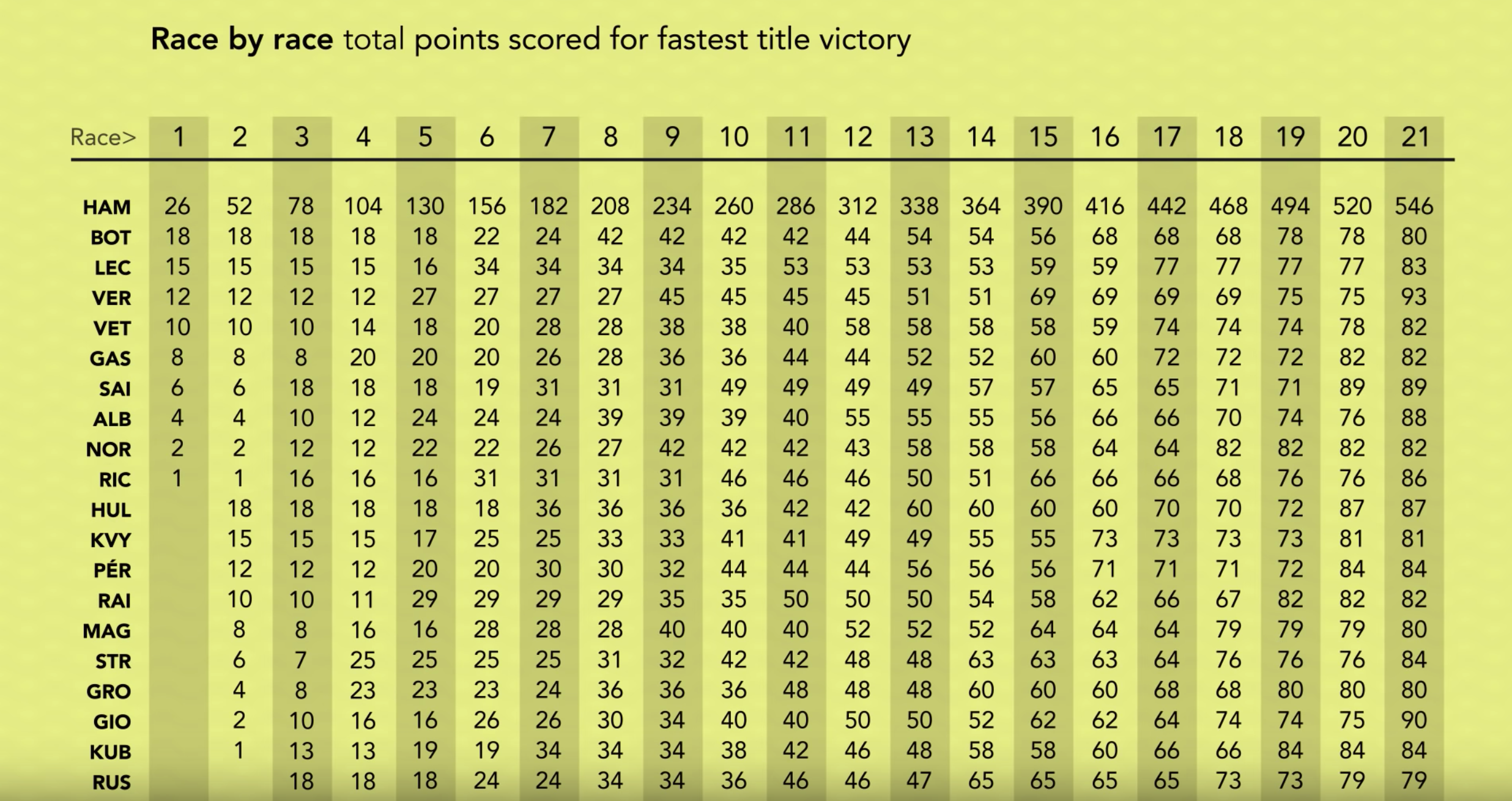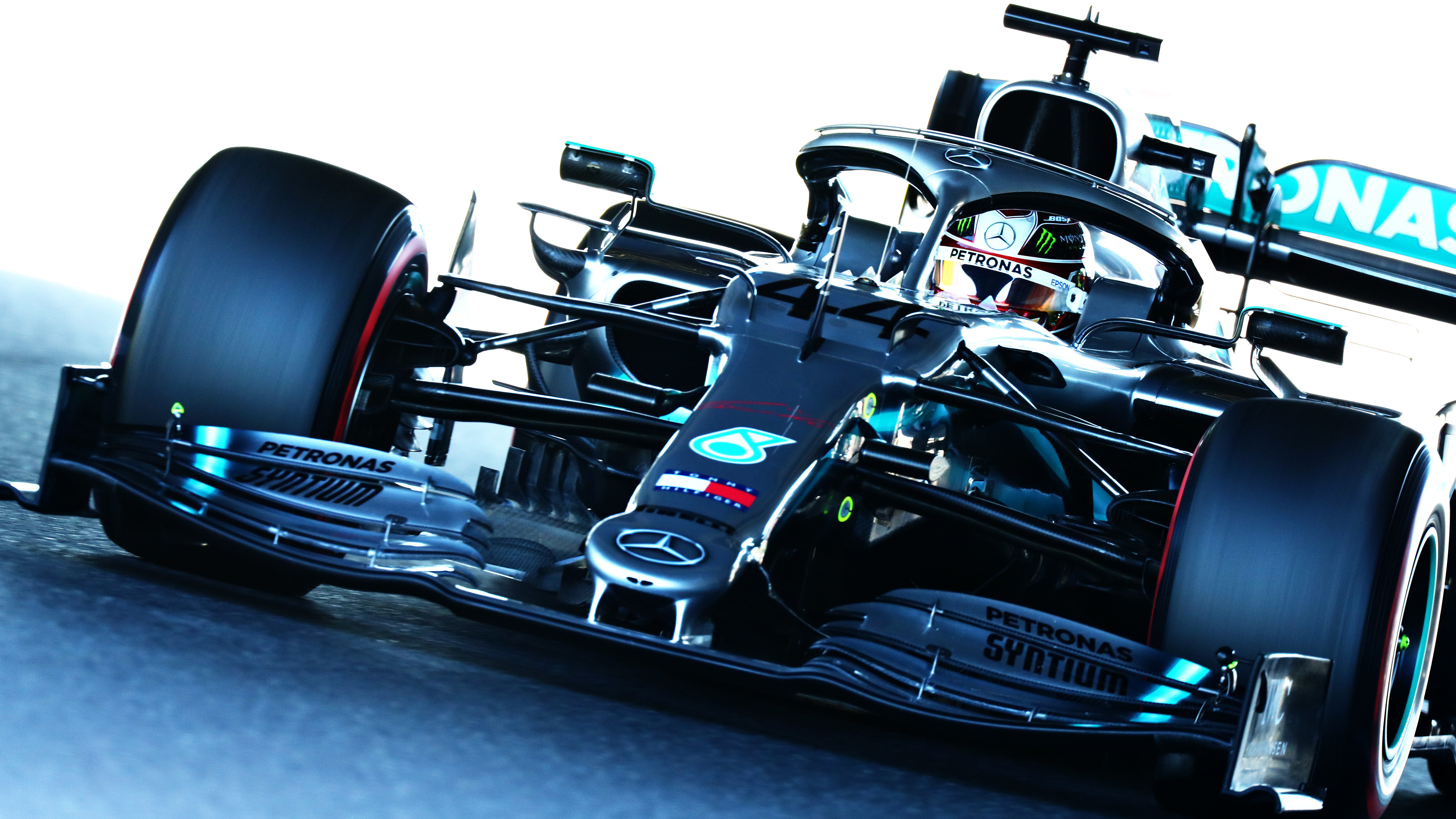Here's The Earliest Possible Race Where An F1 Driver Can Win The World Championship
How early in the year can a Formula One driver secure enough points to be crowned World Champion? It's a question I've always wanted to know but was just far too lazy to find the answer to (math? No thanks!). But now, thankfully, my itch of curiosity has been scratched, and it didn't even require me doing basic algebra.
Chain Bear F1 on YouTube is back again with a wonderfully animated video answering the questions we've all asked but, for whatever reason, just couldn't be bothered to work out. This time, we're talking championships.
If a driver were to win every single race and nab that extra point for setting the fastest lap in 2019, they would take home a grand total of 520 points. That's 26 points for each of the 21 races this season. You can check out how points are awarded for the top ten drivers here.
Chain Bear uses Lewis Hamilton—the current 2019 championship leader—as his guinea pig for this experiment. Intuition tells us that, if he were to win every race and score every single fastest lap point, he would win the championship at the end of the 11th race of the season (the German Grand Prix this year). With Hamilton having scored 286 points with a mere 260 remaining, you'd think he would easily nab the title.
But things aren't that simple because, obviously, there are still points awarded for drivers who finish second through 10th. If, say, Valtteri Bottas was scoring every single second place and racking up 18 points each time, by the German GP, he'd have 198 points. If Hamilton never scored another point and Bottas won the rest of the races, Bottas would win the championship.
So, Chain Bear plots it on a graph comparing the points gap to the leader versus the remaining points left. Only after those two lines cross can Bottas be considered to be out of the championship hunt.
That means that, if Hamilton won every race and every fastest lap, he would win the championship by race 17, the Japanese Grand Prix. He could sit out the last four races of the season and take home the championship trophy at the end of the year. But that's the absolute latest Hamilton could win. We still don't know the earliest.
To figure that out, Chain Bear calculates the lowest possible amount of points the second-place driver could have at any race. This takes a little bit of complicated math.
Trust me, it's far easier to watch it take place in the video, where a handy little chart keeps things nice and clear for everyone. It involves an algorithm that constantly gives second place's points to the lowest driver in the championship standings with the ultimate championship points looking like this:

In this little experiment, every driver would be wiped out of championship contention by race 12, the Hungarian Grand Prix. Even if a driver won all nine of the remaining races, they still wouldn't win the championship.
Obviously, this isn't taking into account all of the possible variables that come into play in a race because it's pretty rare that a single driver will be that dominant. But it is nice to know.
So, that's your answer: if a single driver won both first place and fastest lap in a 21-race season, it would take until race 12 at the earliest, race 17 at the latest, for that driver to wrap up the championship.
I'm glad I wasn't the one who had to figure that out.
